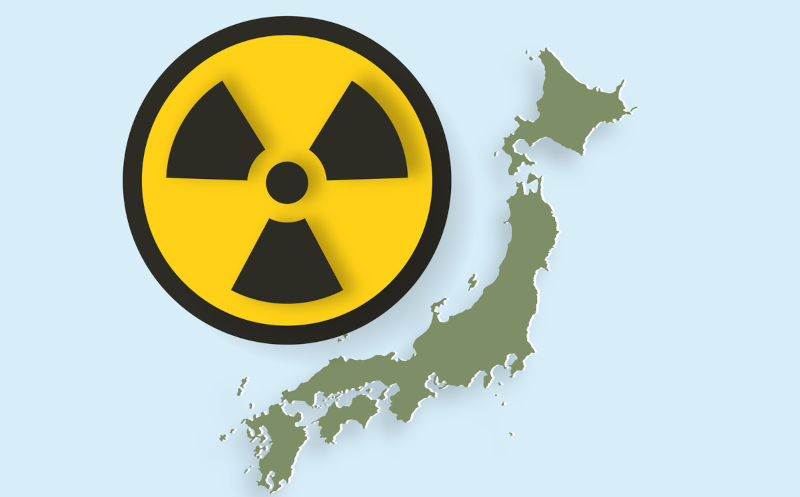Fukushimas nuclear waste: Stigmatising Russia, approving Japan
September 12, 2023
_Twenty years ago, Japan demanded Russia halt disposal of nuclear waste in the Sea of Japan. What changed? Is it the case that there is felonious nuclear waste and respectable nuclear waste? Japan seems to believe that this is so and the Mainstream Media understands why this narrative may deserve its support.
_
The Fukushima Daiichi nuclear power plant, operated by Tokyo Electric Power Company (TEPCO), was catastrophically destroyed by an earthquake and tsunami in 2011. Japan has recently put into effect a decision to release, into the adjacent ocean, more than a million tonnes of water contaminated as a result of the destruction of that nuclear power plant, over the next three decades.
There is a serious debate about the real level of risk posed by this huge, extended release of contaminated water. TEPCO say that they are filtering and diluting the water to remove isotopes apart from tritium, which will enter the sea in a safely attenuated form. A release on this scale is unprecedented, however. Moreover, regardless of this debate over the scientific case, what is additionally of real interest, is how the Mainstream Western Media (MWM) have largely covered this matter.
Japans decision is, unsurprisingly, controversial, not least in China and Korea and also across the fishing community in Japan. The forbidding impact on East Asias seafood industry is already evident.
Yet, as you read reports on what is happening in the MWM, what stands out is the understanding tone evident in most coverage. A recent Reuters report is indicative. It stressed how TEPCO would filter and dilute until tritium levels fall below regulatory levels before pumping it into the ocean, adding that, tritium is considered to be relatively harmless. There is no mention of what AL Jazeera argued in 2021. Their report highlighted TEPCOs long-term, poor safety-management reputation, noting that:
One of the gravest charges was that the companys own internal studies had concluded prior to the accident that the plant might be vulnerable to a large tsunami and needed a protective barrier.
The revealing Reuters report also told us that water containing tritium is routinely released from nuclear plants around the world (zero mention of the quantities) and that (unnamed) regulatory authorities support dealing with the Fukushima water in this way. The report reads as though it may have been appreciably based on a TEPCO press release.
Next, it is illuminating to consider how Tokyo dealt with the release of 900 tonnes of radioactive waste into the ocean to the north of Japan, in 1993, by Russia.
A recent commentary in the Korea Herald explained that, while this Russian waste had not been filtered, it was still regarded as low-level waste. Moreover, according to another recent report in the Global Times, although the International Atomic Energy Agency (IAEA) knew in advance of the Russian plan to dump this waste in 1993, it did not see a need to intervene.
However, twenty years ago, Japan demanded a permanent halt to the Russian disposal of the waste into the Sea of Japan, forthwith. The Russian Ambassador to Japan was summoned to hear Tokyos complaints and stipulations. Japan also sought to deploy international law arguments to bolster its case, despite the lack of any intervention by the IAEA. Remember, too, that the total waste disposal involved here was a tiny fraction of the planned purging of waste-water from the Fukushima plant.
Russia, in 1993, was still finding its sovereign-feet following the collapse of the USSR and it swiftly agreed to the demands to cease discharging any further waste under the pressure applied by Japan and other countries, including the US. The MWM today refer to waste water being released from the Fukushima storage tanks but in 1993, Russia was dumping nuclear waste.
One way to get a handle on the tilt of this commentary is to imagine a similarly ruinous destruction of a shoreline Chinese nuclear plant, coupled to a water-release solution of the same magnitude. Picture the sort of lurid headlines we would, by now, almost certainly be seeing across the MWM led by its more feverish outlets: China set to poison the Pacific Ocean for decades to come; and The Chinese Communist Party demonstrates contempt for Planet Earth.
So, it transpires, depending on your standpoint, that there is felonious nuclear waste and respectable nuclear waste. Which brings to mind a story related by a leading British Labour politician from his youth. He was marching in a Ban the Bomb rally. A more committed believer pointed out, when he said he was against all nuclear weapons, that he was misguided: the atomic bomb possessed by the USSR was in a different category, as it was the Peoples Bomb.

